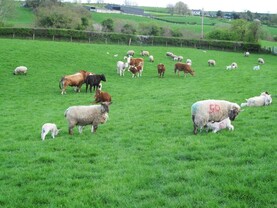The IFA discussed the need for flexibilities in TB testing requirements with senior Department officials, as Government controls intensifiy.
“The Department’s response is balanced and reasonable. It provides farmers who have COVID-19 concerns the flexibility to delay tests, while at the same time allowing for a period of trade after the due date of the test,” IFA animal health chair Pat Farrell said.
The removal of the requirement to test calves up to 120 days is significant and addresses the issue of close contact between farmers and vets at the time of testing.
Critically, he said these animals would be eligible for internal trade up to 120 days of age without a TB test.
The National Council of the IFA has voted to allow postal ballots for the election of officers at national and county level.
Under Rule 73, the national treasurer and returning officer Martin Stapleton has responsibility for the execution of all elections and election procedures in IFA.
Our ambition is to hold all elections for county representatives on national committees that fall due between now and Christmas
The deadline for branch AGMs has been extended by four months to July 2021, to allow branches the maximum flexibility to hold their meetings into the spring and summer months.
Stapleton said: “Given the circumstances presented by COVID-19 and the restrictions imposed by public health guidelines, the Council has decided to proceed with all elections that fall this year.
“Meetings in person are not possible under current public health restrictions, so we have to put alternative arrangements in place.”
“Our ambition is to hold all elections for county representatives on national committees that fall due between now and Christmas. Already this year, both the chair of the liquid milk committee, Keith O’Boyle, and the vice-chair of the livestock committee, Declan Hanrahan, were elected by a postal ballot,” he said.
Operating the IFA structures during COVID-19 has required flexibility
Stapleton said the approval from the national council is in line with other adjustments that have been made to facilitate the normal functioning of IFA business under exceptional arrangements because of COVID-19, without making any permanent changes to the IFA rules or constitution.
“Operating the IFA structures during COVID-19 has required flexibility. Our national council and national committees have been functioning effectively through remote meetings.
“Our county executive meetings have also gone online since the summer, with attendances growing as members become more comfortable with the technology. However, access to broadband remains a challenge,” he said.






 This is a subscriber-only article
This is a subscriber-only article








SHARING OPTIONS: